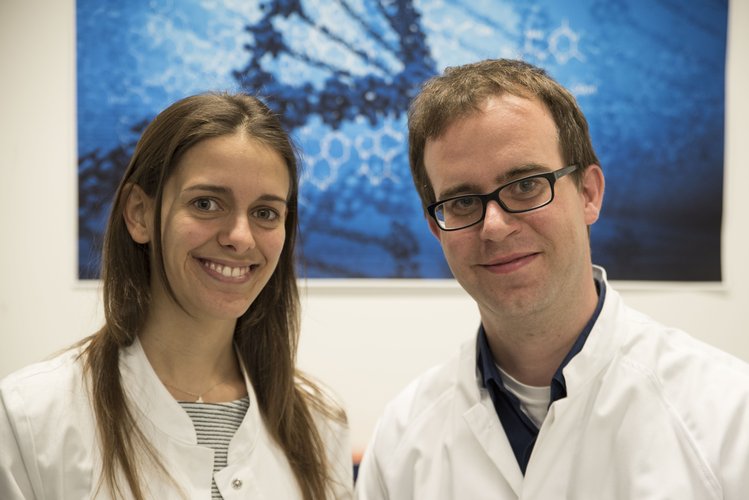Inherited DOCK2 deficiency in patients with early-onset invasive bacterial and viral infections
Share
In an international study scientists from Kaan Boztug´s team at CeMM and the Medical University of Vienna, in close collaboration with the groups of Luigi Notarangelo at Boston Children’s Hospital, and Jean-Laurent Casanova at Rockefeller University, New York , have elucidated the molecular cause of a hitherto unrecognized inherited disorder of the immune system (primary immunodeficiency). Performing genetic and cellular immunological studies, the researchers identified biallelic mutations in DOCK2, a gene encoding a protein of critical importance for the cytoskeleton. Patients affected by this rare disease exhibit broad defects of immunity, including defective cellular motility and effector function of various types of leukocytes. The findings have been published online, on 18th June, 2015, in the New England Journal of Medicine.
According to the EU-wide definition, a disease is classified as rare if it occurs in no more than five people per 10,000 inhabitants. Often, far fewer people suffer a rare disease, of which there are estimated to be up to 8,000 different ones. To foster better diagnostics, research, and clinical care of patients with rare diseases, the Medical University of Vienna together with CeMM have recently established the Vienna Center for Rare and Undiagnosed Diseases (CeRUD) in Vienna. Although a number of primary immunodeficiencies have been identified, a large number remains elusive. Accordingly, a scientific focus at CeRUD lies in the investigation of undefined immunodeficiency disorders, conducted by Kaan Boztug, whose research group has identified several novel types of immunodeficiency disorders since his relocation to Vienna in 2011. Recognition of such disorders has a huge impact beyond the individual patient, as it allows for a molecular understanding of the hierarchical composition of the human immune system and its core components as well as their involvement in molecular networks. From the molecular characterization of these diseases, patients may profit through more specific diagnostics and the development of targeted therapeutic approaches in the future.
In their publication, CeMM PhD student Cecilia Domínguez Conde along with shared first authors Kerry Dobbs, Sheng-Ying Zhang and Silvia Parolini used a next generation sequencing-based approach to identify autosomal recessive mutations in DOCK2 in five unrelated families. The patients were characterized by a history of life-threatening bacterial and viral infections during infancy and early childhood. DOCK2 is an activator of the signaling molecule Rac1 which regulates cytoskeletal rearrangements and signaling events. Adequate control of the cytoskeleton is particularly important for immune cells, since they critically depend on regulated actin dynamics to enable migration and immune cell signaling. The defects resulting from DOCK2 mutations included impaired chemokine-induced migration in B and T cells and cytotoxic activity of NK cells. In addition, the authors identify an unexpected role for DOCK2 in non-hematopoietic cells including deficient antiviral immunity, which may explain the marked susceptibility to viral infections in these patients. Due to the severity of the disease, the authors find that allogeneic hematopoietic stem cell transplantation should be performed early after detection, and may be efficient in providing long-term immune reconstitution.
Publication
Inherited DOCK2 Deficiency in Patients with Early-Onset Invasive Infections.
Kerry Dobbs*, Cecilia Domínguez Conde*, Shen-Ying Zhang*, Silvia Parolini*, et al.,
Jean-Laurent Casanova#, Kaan Boztug#, and Luigi D. Notarangelo#
New England Journal of Medicine, AOP 18 June 2015. DOI: 10.1056/NEJMoa1413462.
* Shared first authors
# Shared senior and corresponding authors
Fundings
We thank the following organisations for funding
ÖAW and MUW, NIH, Manton Foundation, European Research Council, Austrian Science Fund START programme, NCRR, NCATS, German Research Foundation Cluster of Excellence REBIRTH, New England Newborn Screening Program, Scientific and Technological Research Council of Turkey, Union Chimique Belge Celltech and Baxter Healthcare.

